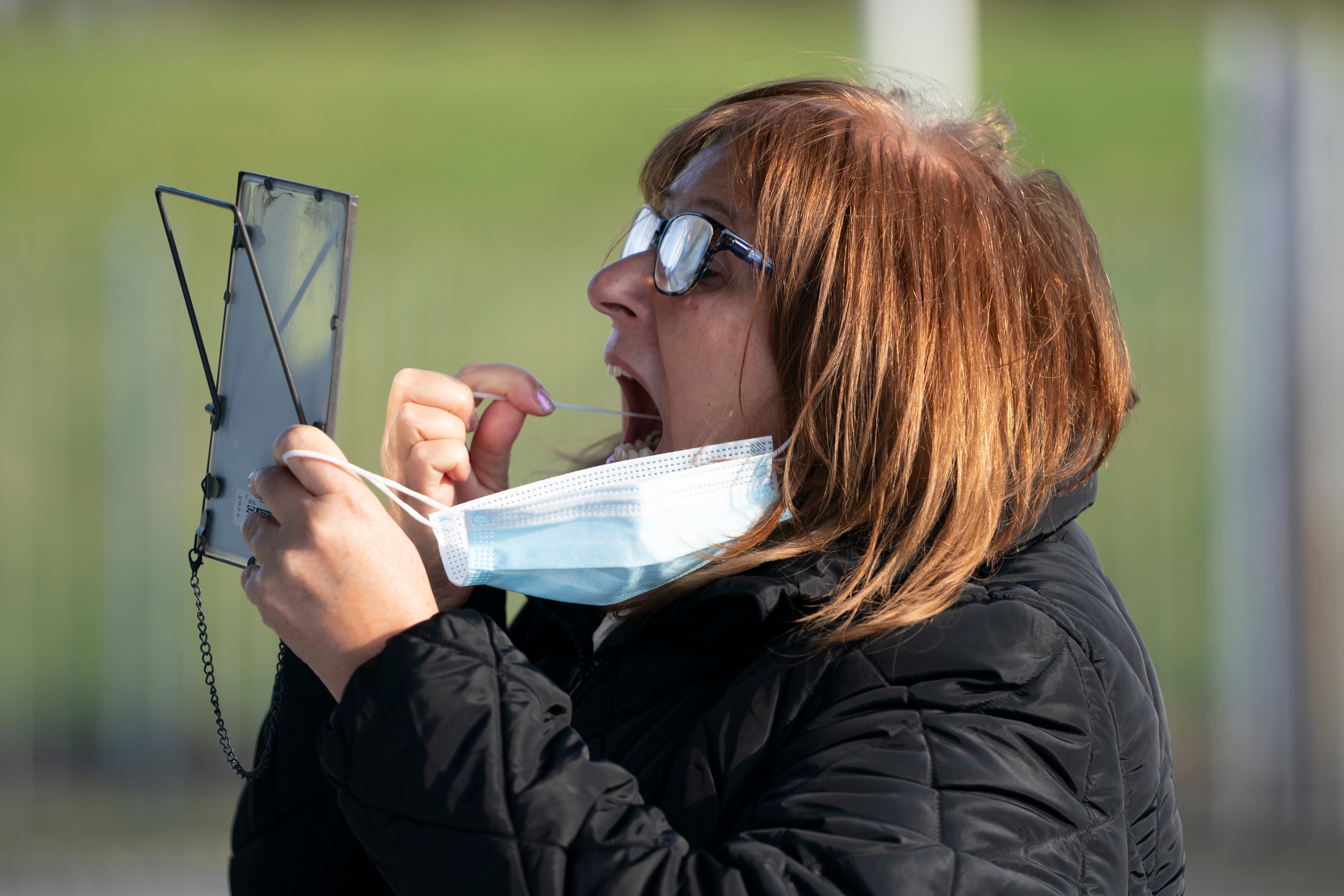UK's first mass COVID testing program underway in Liverpool
Hundreds of people have been tested for the coronavirus in the English city of Liverpool as Britain’s first mass coronavirus testing program got underway

Your support helps us to tell the story
From reproductive rights to climate change to Big Tech, The Independent is on the ground when the story is developing. Whether it's investigating the financials of Elon Musk's pro-Trump PAC or producing our latest documentary, 'The A Word', which shines a light on the American women fighting for reproductive rights, we know how important it is to parse out the facts from the messaging.
At such a critical moment in US history, we need reporters on the ground. Your donation allows us to keep sending journalists to speak to both sides of the story.
The Independent is trusted by Americans across the entire political spectrum. And unlike many other quality news outlets, we choose not to lock Americans out of our reporting and analysis with paywalls. We believe quality journalism should be available to everyone, paid for by those who can afford it.
Your support makes all the difference.Hundreds of people were tested for the coronavirus in the English city of Liverpool as Britain's first mass coronavirus testing program got underway Friday, a long-awaited development that has been touted as a potential game-changer in the U.K. s battle against the virus.
Long lines of residents formed outside the city's six new test centers, which opened at midday and are set to stay in place for a couple of weeks.
The centers located at the Exhibition Centre Liverpool and at local sports facilities are providing lateral flow — or swab — tests with a turnaround time of under an hour for the estimated half-million people who live and work in Liverpool the city and do not have COVID-19 symptoms. About 2,000 military personnel have been deployed to help run the program that has the capacity to test thousands of people every day.
Moira Garwood, 80, has been diligently following public health rules since the British government first imposed restrictions in March. Even so, she was keen to find out that she didn't have the virus and that she was ready to go again in a couple of weeks.
“I’m being good. I’m not going out. I shielded for the six months, and I’m doing this now and I still want to make sure,” said Garwood, who was one of the first in line for the rapid test at Liverpool Tennis Centre.
The British government earlier this week picked Liverpool to host the pilot testing program because the city is one of the worst-affected parts of the country during the pandemic's current second wave in Europe. With new confirmed cases and deaths on the rise, England on Thursday entered a four-week lockdown until at least Dec. 2.
“I think it’s logistically one of the biggest things that’s been undertaken for mass testing ever, certainly in the U.K. and possibly in Europe," Liverpool Mayor Joe Anderson said.
The hope is that mass — and regular — testing will provide a way out of Europe's deadliest outbreak, which has killed nearly 48,500 people across the U.K. since the start of the pandemic.
By monitoring who is and who isn't infected with the virus, authorities should be able to get a better picture of how and where it is getting transmitted. In addition to the new test centers, more testing is taking place in schools, universities, workplaces and nursing homes, as well as at the existing mobile test centers in the city.
Anderson said he thought the trial would be a success and hoped it would be rolled out across the country.
“I’m positive that the government will then change tack and start fighting the virus in a proactive way, mass testing continually to help us getting back to some normality," the mayor said.
Mass community testing would help ease the pressure on a track and trace system that Prime Minister Boris Johnson has acknowledged did not work as well as expected. The underperforming track and trace system has been partly blamed by many for the resurgence of the virus in the U.K. over the past few weeks.
Scientists have said that mass testing of the sort taking place in Liverpool can help public health teams to trace both symptomatic and asymptomatic carriers, as well as their contacts, but that it's no panacea.
“There are several big ‘ifs, though,'" University of Oxford clinical fellow Luke Allen said. “People need to show up for testing, testing should happen repeatedly in order to track changes over time, and most importantly the track and track system needs to function effectively.”
___
Pylas contributed from London.
___
Follow AP’s coronavirus pandemic coverage at https://apnews.com/hub/virus-outbreak and https://apnews.com/UnderstandingtheOutbreak